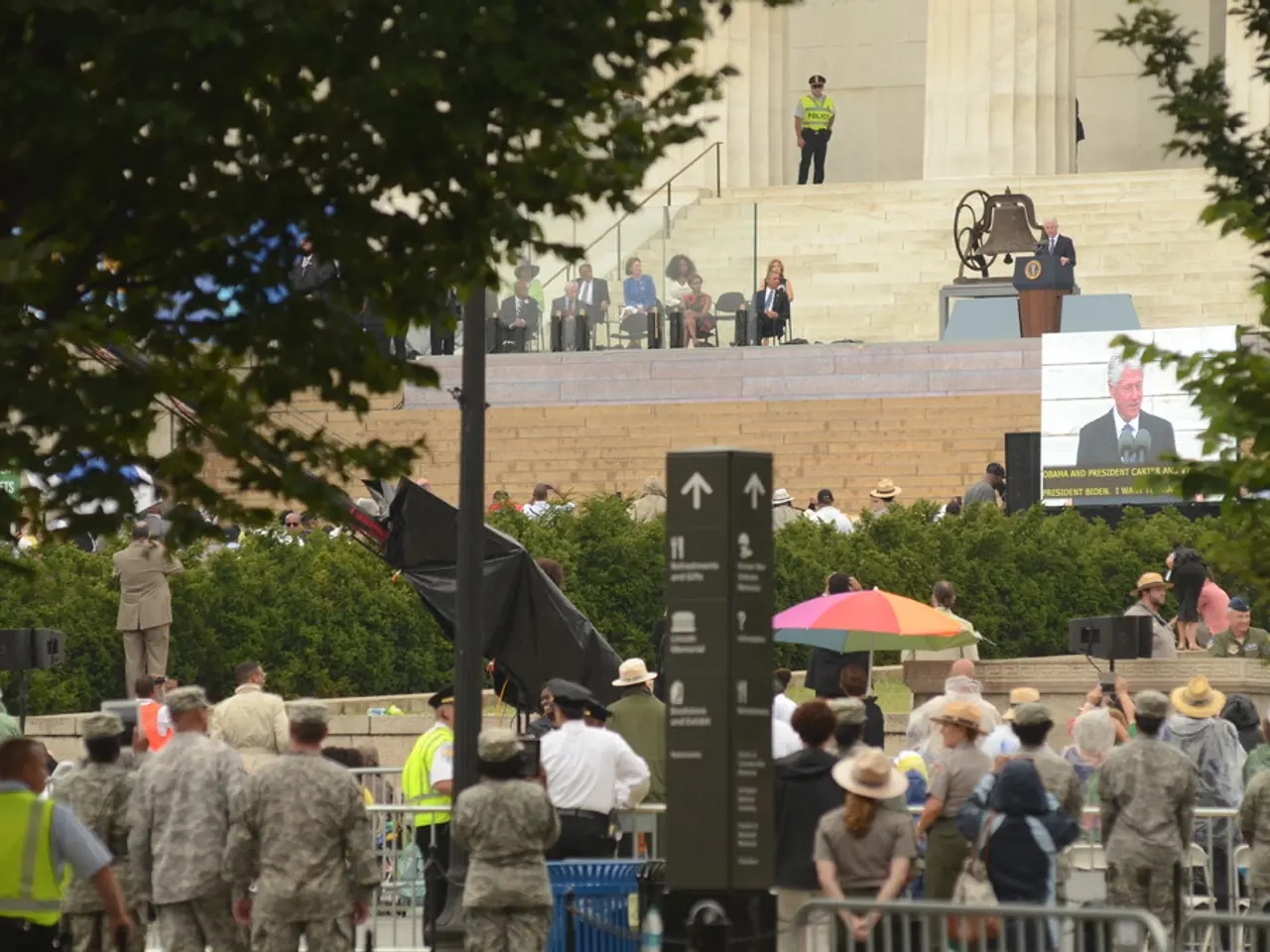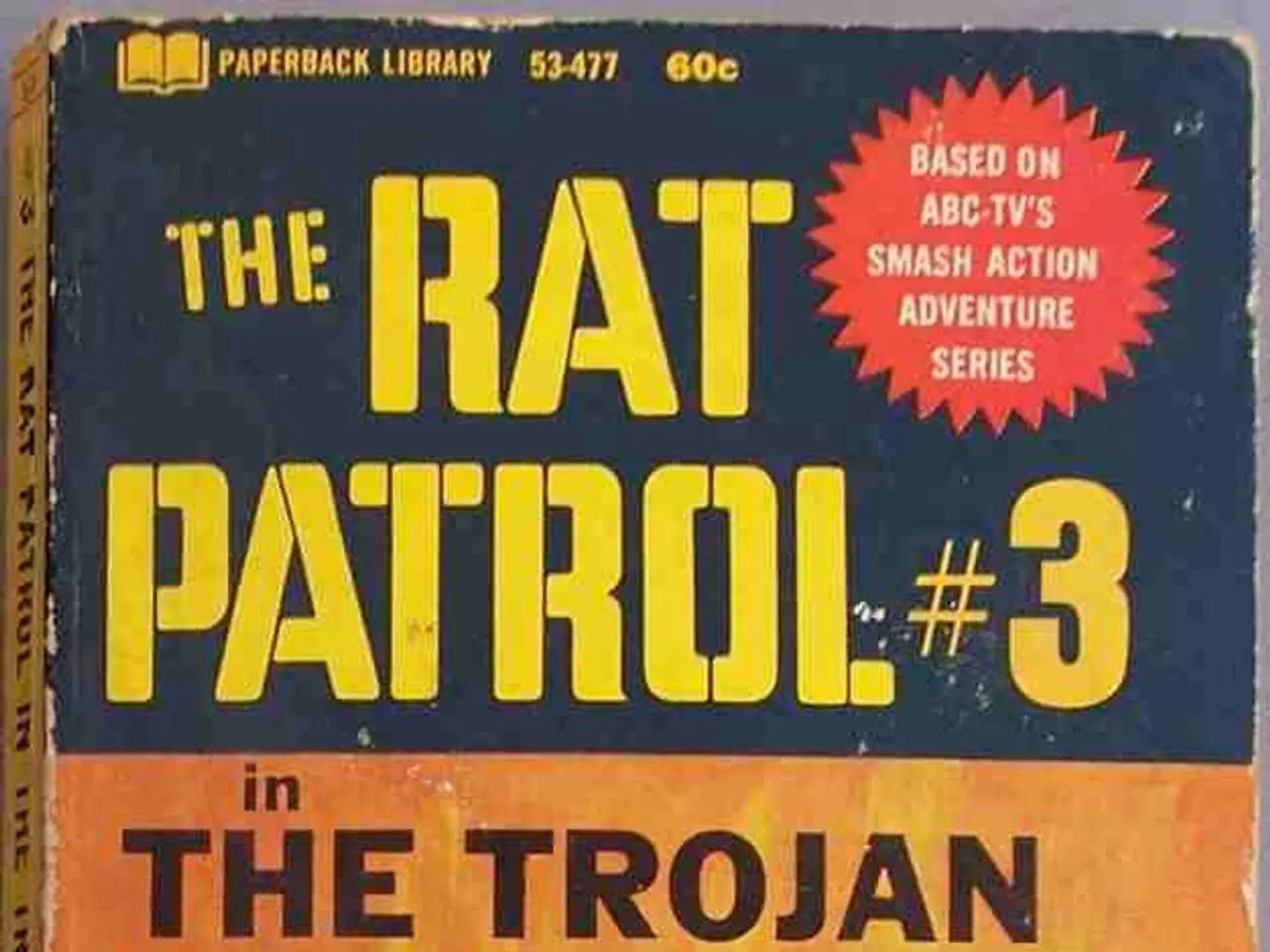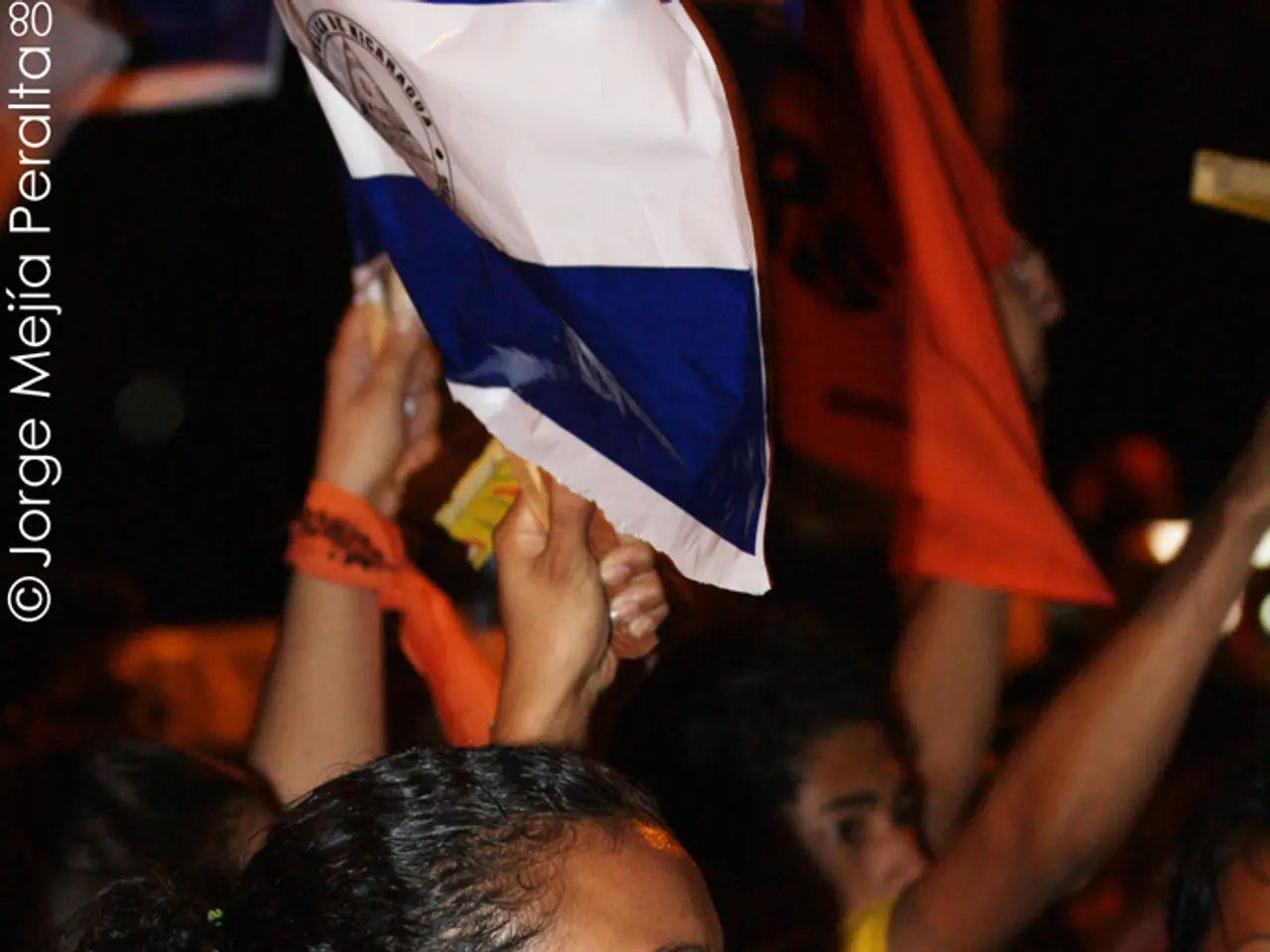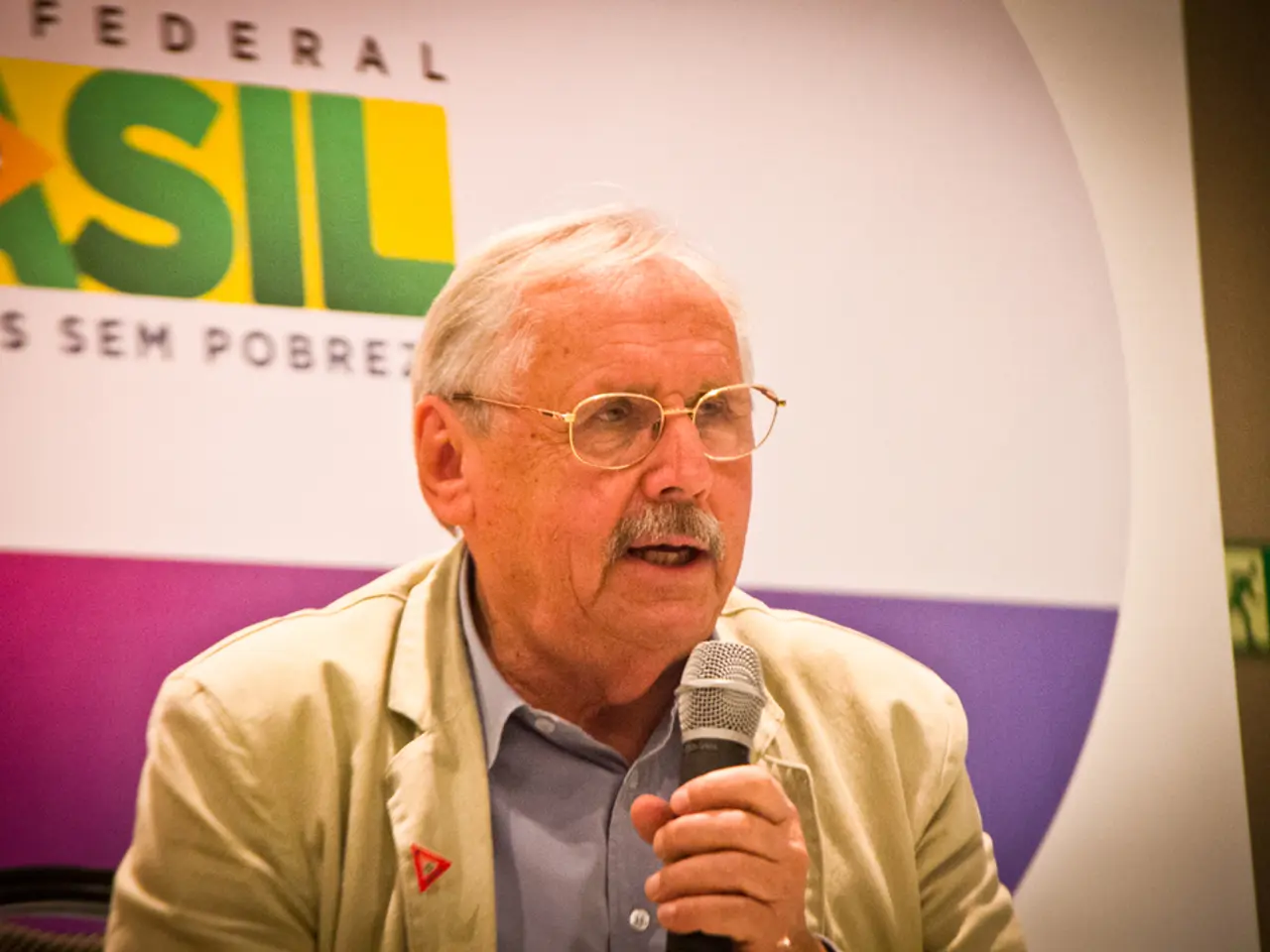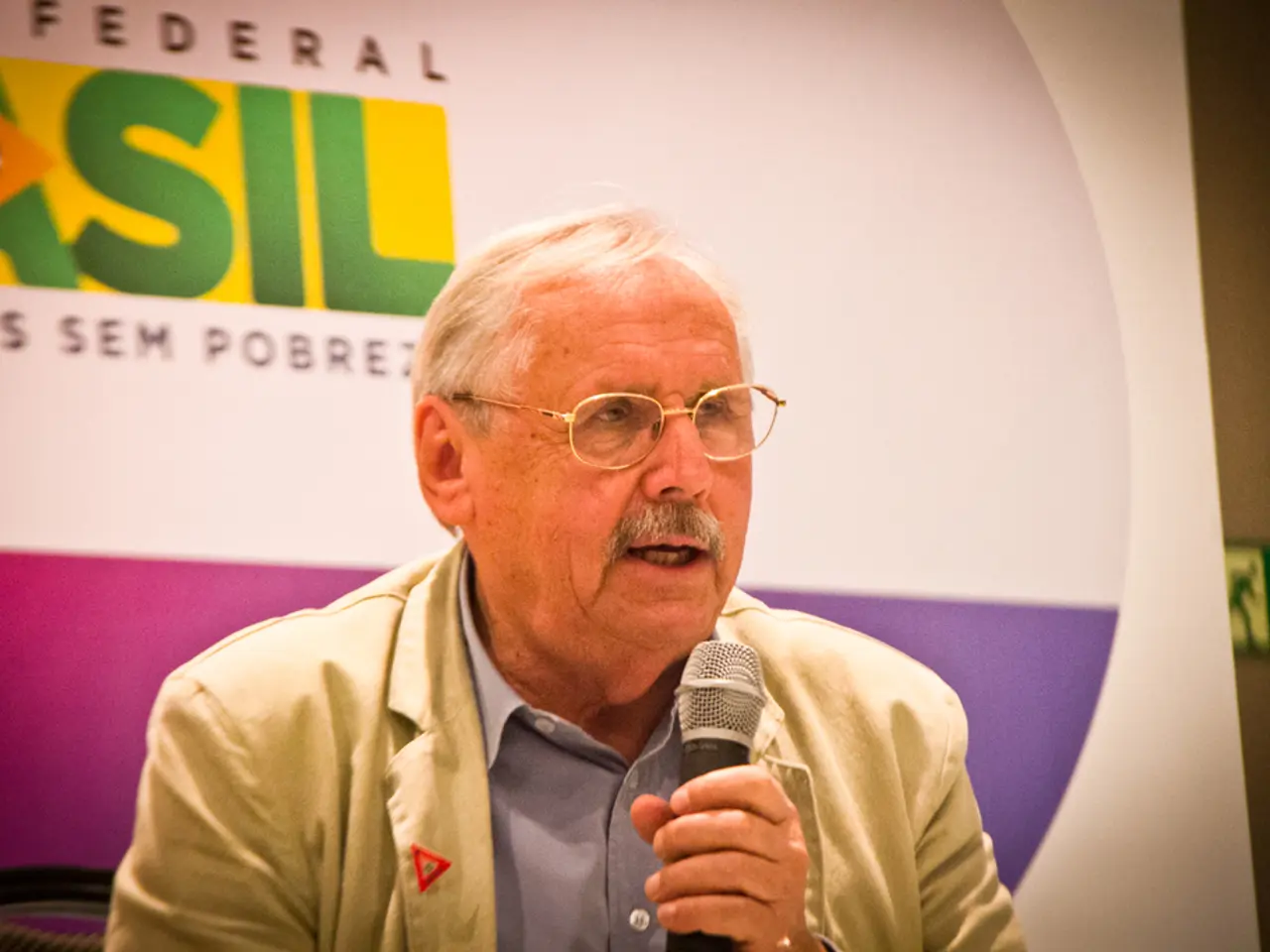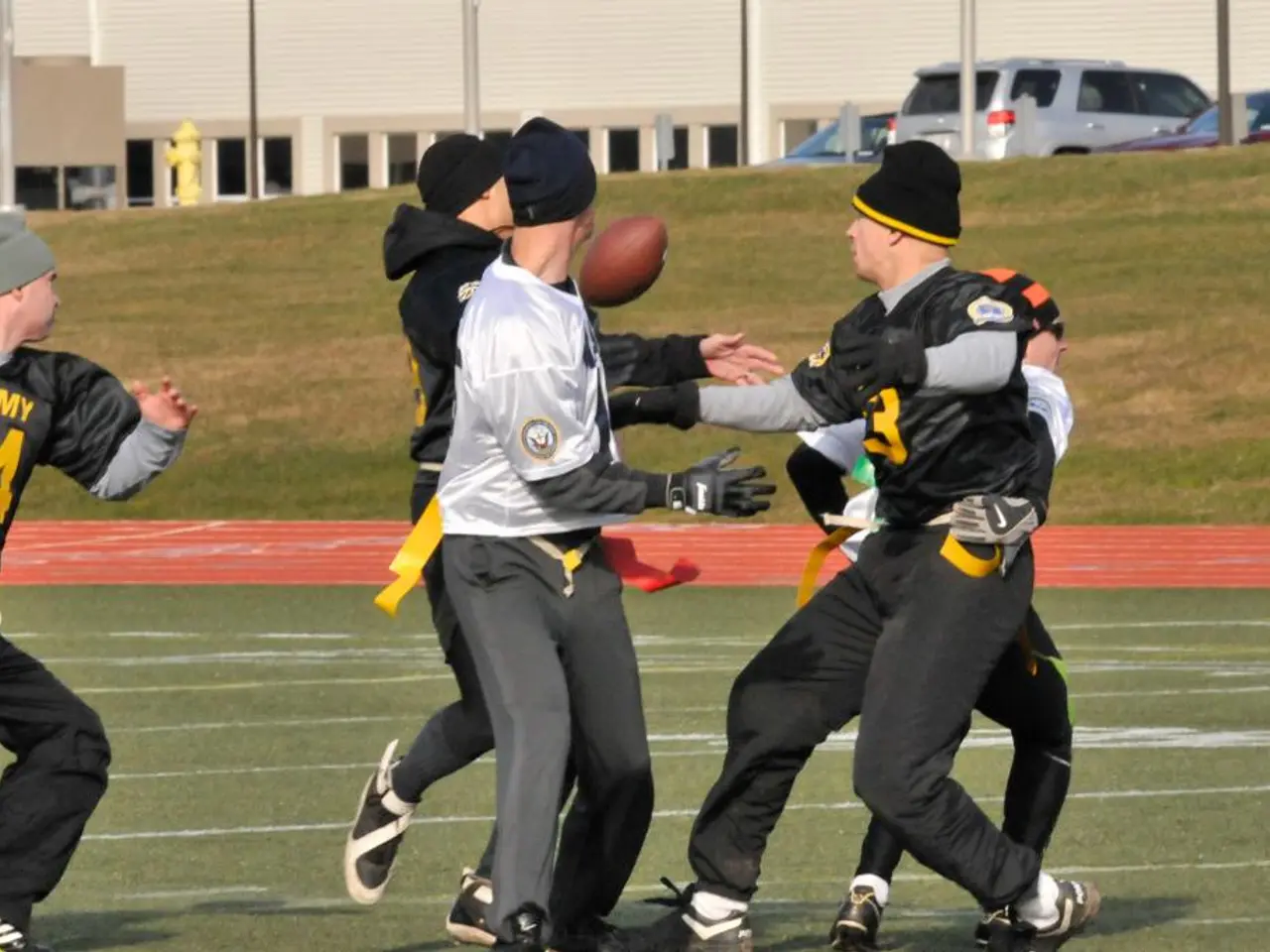Trump funding reductions leave aid organizations in a dilemma about whether to publicly voice their concerns or stay quiet
In the realm of international aid, a contentious debate has arisen under the Trump administration regarding the strategy of public silence in response to funding cuts. This debate centres around the question of whether speaking out publicly helps or hurts the cause, with some aid groups choosing to remain mostly silent to avoid political confrontation or jeopardizing remaining funding, while others argue that silence allows harmful aid reductions to proceed unchecked [1][4].
The Trump administration has been accused of using audits as a weapon to intimidate NGOs into silence on cuts to foreign aid. These cuts, which affected programs such as refugee resettlement and global health initiatives, led to drastic reductions in staff and programs for humanitarian organizations [1][2]. The administration's moves included freezing payments mid-project, dissolving agencies, and merging refugee assistance funds into discretionary disaster relief accounts tied to political criteria [1][2][3].
Some aid groups, particularly faith-based groups, have chosen to remain quiet, focusing on behind-the-scenes advocacy or adapting programs discreetly, allegedly to safeguard fragile remaining resources and maintain operational access [1]. However, this approach has drawn criticism for reducing pressure on the administration to reverse damaging policies. Critics argue that public silence allows harmful aid reductions to proceed unchecked, exacerbating humanitarian crises and undermining U.S. global leadership and values [1][4].
Andrew Natsios, former head of the United States Agency for International Development, understands why some groups are opting for silence due to fears of arrest, torture, and deportation of staff. However, he believes that more groups, particularly faith-based groups, are starting to speak up publicly as they "realize what's happening" and see the full scope of the impact [4].
One such group defying "anticipatory silence" is the Center for Victims of Torture, which sued the administration over the foreign aid freeze. Scott Roehm, director of global policy and advocacy at the Center for Victims of Torture, states that continuing to speak up was about the least they could do to honor their clients who were targeted for protesting against authoritarian regimes [3].
The debate about international aid groups’ strategy of public silence in response to Trump administration funding cuts is a delicate balance between pragmatic caution against political backlash and the need for outspoken advocacy to resist and reverse foreign aid dismantling under the Trump administration’s policies [1][4].
Nonprofits are concerned about the increased weaponization of government against nonprofit groups who may disagree with the sitting administration's agenda. A coalition of nonprofit organizations and charities, Americans Against Government Censorship, has spoken out about this concern [2].
Adapting to anticipatory obedience can be a "dangerous slippery slope" to authoritarianism, according to Thomas Weiss, a professor of international relations. Similar concerns about silence vs. protest are apparent in other sectors of society, including private universities, businesses, and the political sector [2].
Michael Vazquez, founding partner at the Maiden Group, believes in subtle advocacy efforts and points to a successful campaign to convince lawmakers not to claw back money previously allocated to PEPFAR, the U.S. HIV/AIDS prevention program [2].
However, choosing to speak out comes with risks, as it may lead to further targeting or loss of funding. A number of aid groups have chosen silence instead of decrying funding cuts and advocating for their programs to be restored due to fear of further targeting or negotiation behind the scenes [1].
The programs in question were designed to prevent HIV from spreading, provide clean water, and feed malnourished children [1]. There remains a good deal of frustration among the staff at non-profits that are keeping a low profile, but some say that feeling is misplaced, as the administration is holding hostage every single life they could save in exchange for their silence [1].
Elon Musk, as Trump's adviser, boasted about feeding USAID foreign aid programs to the woodchipper, and 83% of those U.S.-funded programs were axed by the administration's efforts to root out "fraud, waste and abuse" [1].
In conclusion, the debate revolves around balancing pragmatic caution against political backlash versus the need for outspoken advocacy to resist and reverse foreign aid dismantling under the Trump administration’s policies [1][4]. The question remains: will aid groups continue to stay silent or will they find their voices to stand up for those in need?
References: [1] The Guardian. (2019, February 13). US foreign aid groups are going silent on Trump cuts. Is it the right move? Retrieved from https://www.theguardian.com/global-development/2019/feb/13/us-foreign-aid-groups-are-going-silent-on-trump-cuts-is-it-the-right-move [2] The New York Times. (2018, December 21). The Risks and Rewards of Silence on Aid Cuts. Retrieved from https://www.nytimes.com/2018/12/21/opinion/us-foreign-aid-cuts.html [3] The Washington Post. (2018, December 11). The Center for Victims of Torture sues Trump administration over foreign aid freeze. Retrieved from https://www.washingtonpost.com/world/national-security/the-center-for-victims-of-torture-sues-trump-administration-over-foreign-aid-freeze/2018/12/11/8a81881e-951c-11e8-8f90-5f7d5d7c77d6_story.html [4] NPR. (2019, February 11). Former USAID Chief: 'Anticipatory Silence' Is The New Normal For International Aid Groups. Retrieved from https://www.npr.org/2019/02/11/693562834/former-usaid-chief-anticipatory-silence-is-the-new-normal-for-international-aid-g
- The debate regarding public silence among international aid groups in response to funding cuts under the Trump administration is a delicate balance between pragmatic caution and the need for outspoken advocacy.
- Some aid groups, particularly faith-based groups, have chosen to remain quiet, focusing on behind-the-scenes advocacy or adapting programs discreetly to safeguard resources and maintain operational access.
- However, critics argue that public silence allows harmful aid reductions to proceed unchecked, exacerbating humanitarian crises and undermining U.S. global leadership and values.
- The Center for Victims of Torture, which works with victims of war-and-conflicts, chose to speak up publicly and even sued the administration over the foreign aid freeze.
- The debate extends beyond international aid, with concerns about silence vs. protest apparent in other sectors, including private universities, businesses, and the political sphere.
- Choosing to speak out comes with risks, as it may lead to further targeting or loss of funding, but some believe that this is a necessary step to stand up for those in need.
- Nonprofits are concerned about the increased weaponization of government against organizations who may disagree with the sitting administration's agenda, leading some to question policy-and-legislation and engage in crime-and-justice-related activities.
- The programs in question were designed to address general-news issues such as preventing HIV, providing clean water, and feeding malnourished children, making their reduction a cause for concern in the realm of ESG investments and credit migration.
